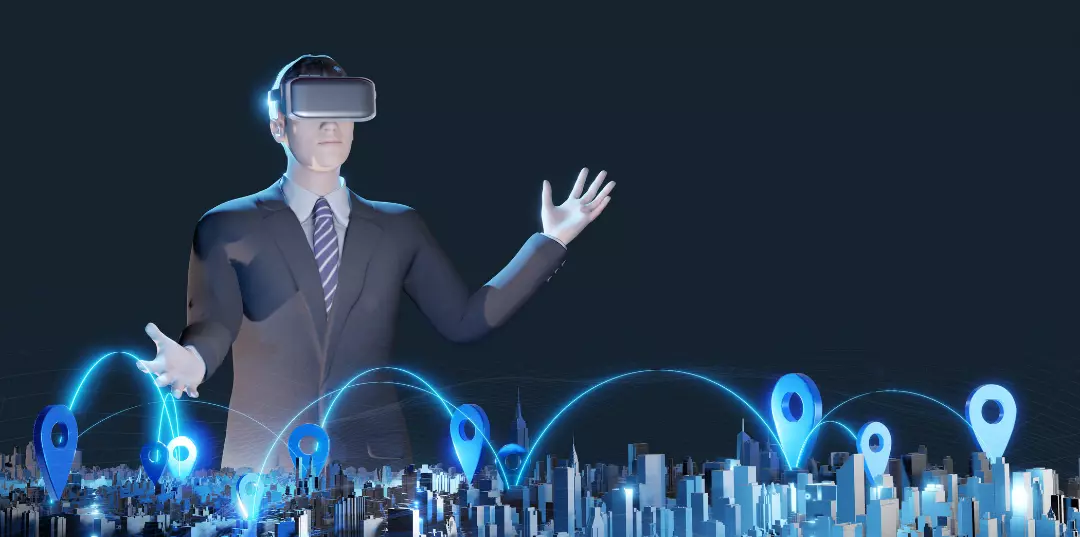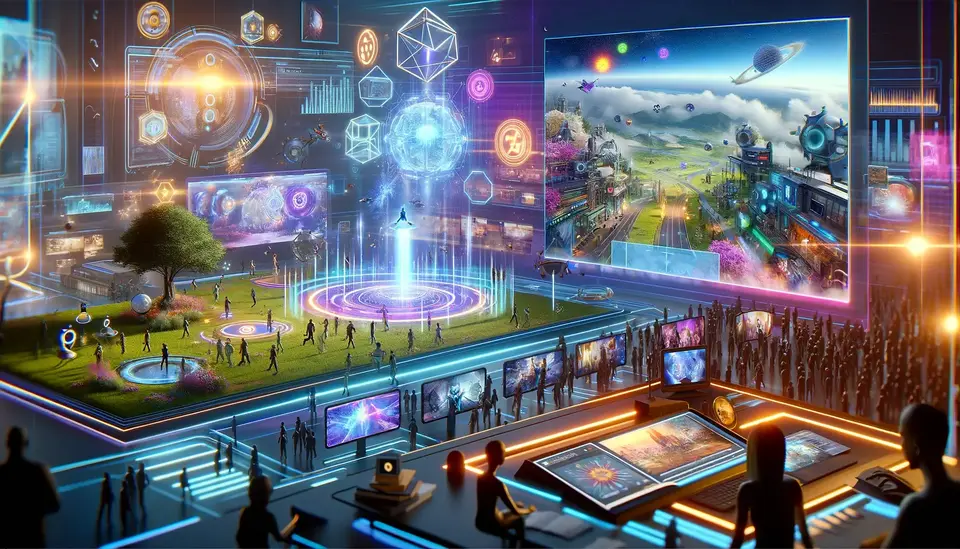Benefits of Metaverse for Real Estate
Posted on May 31, 2023 5 minutes 857 words
Table of contents
- Virtual Property Tours: Making Geography Irrelevant
- Precise Property Visualization: Seeing the Unseen
- Virtual Staging: Limitless Potential, Fraction of the Cost
- Digital Real Estate: Building in the Metaverse
- Digital Communities: Fostering Connection in Virtual Spaces
- Sustainability: A Greener Approach to Real Estate
- Conclusion
As the world becomes increasingly digital, the boundaries between physical and virtual reality are blurring, transforming the way we live, work, and interact. At the forefront of this digital revolution is the metaverse: a collective virtual shared space created by the convergence of virtually enhanced physical reality and physically persistent virtual reality.
While the concept of the metaverse has wide-reaching implications across many industries, its intersection with real estate - one of the oldest and most tangible sectors - holds intriguing possibilities. This post explores the transformative benefits of the metaverse for real estate, from virtual property tours to digital communities.
Virtual Property Tours: Making Geography Irrelevant
Traditionally, the process of buying real estate, whether residential or commercial, is location-centric and can often require extensive travel for property visits. This geographic limitation shrinks the potential customer base for real estate companies and developers and restricts buyers to a limited number of options.
With the advent of the metaverse, these geographical boundaries become irrelevant. Using virtual reality, potential buyers can tour properties from the comfort of their own homes, immersing themselves in a 3D representation of the property that they can explore at their leisure. This expansion of the customer base and the convenience offered to buyers could revolutionize the real estate market, making it more accessible and efficient.
Precise Property Visualization: Seeing the Unseen
The metaverse doesn’t just replicate physical spaces for virtual tours, it also enables developers to create and showcase properties that are yet to be constructed. Highly accurate, to-scale 3D models of properties can be built within the metaverse, giving prospective buyers a detailed visual representation of their potential investment.
This technology allows buyers to ‘walk’ around a property, getting a feel for its layout and dimensions. They can see how sunlight filters into rooms at different times of the day, check the views from windows, and even visualize how their own furniture might look in the space. The result is a level of understanding and confidence that simple blueprints or artist renderings can’t provide.
Virtual Staging: Limitless Potential, Fraction of the Cost
Staging a property for sale has long been a proven method to attract potential buyers. However, it’s a process that can be both expensive and time-consuming, with the need to invest in physical furniture, decor, and professional staging services.
In the metaverse, virtual staging replaces the need for these physical elements. Properties can be furnished and decorated virtually, with an endless catalogue of styles and options to choose from. Prospective buyers can visualize not just the property, but their future life within it. Plus, the ability to change the staging easily means a single property can appeal to a wider range of buyer preferences.
Digital Real Estate: Building in the Metaverse
Perhaps the most revolutionary aspect of the metaverse in real estate is the creation of a new kind of property market: digital real estate. Virtual plots of land and properties within popular metaverse platforms are already being bought and sold for significant amounts.
These digital properties, while they don’t exist in the physical world, hold significant value. They offer businesses a permanent presence in digital spaces that are becoming increasingly populated. They also represent an entirely new kind of real estate investment, one that doesn’t require maintenance, can’t be physically damaged, and has the potential for significant returns.
Digital Communities: Fostering Connection in Virtual Spaces
The metaverse is more than just a space for buildings; it’s a place where people can interact in real-time, regardless of their physical location. This capability has significant implications for real estate, particularly in the development of new residential or commercial spaces.
Developers can foster a sense of community among future residents or tenants within the metaverse, long before physical construction is completed. Regular virtual meetups, community events, and the sharing of plans and ideas can create a bond between future residents, leading to stronger, more engaged communities when they move into their physical spaces.
Sustainability: A Greener Approach to Real Estate
The real estate sector has long been associated with significant carbon emissions, from the construction phase to property maintenance. However, the metaverse can help reduce the environmental impact of the industry.
Virtual property tours reduce the need for physical travel, cutting down carbon emissions. Furthermore, the ability to showcase and tour properties that haven’t yet been built lessens the need for physical show-homes and scale models. The metaverse, thus, offers a greener, more sustainable approach to real estate.

Conclusion
The convergence of the metaverse and real estate signifies a paradigm shift in the way we buy, sell, and interact with property. From providing unmatched convenience to buyers and sellers to offering new investment opportunities in virtual lands, the metaverse opens a world of possibilities for the real estate industry.
As with any emerging technology, there will be challenges to overcome and ethical considerations to address. However, the potential benefits of the metaverse are immense, promising a future where the boundaries between the physical and digital world seamlessly blend, providing a new canvas for the real estate industry to innovate, grow, and thrive.








